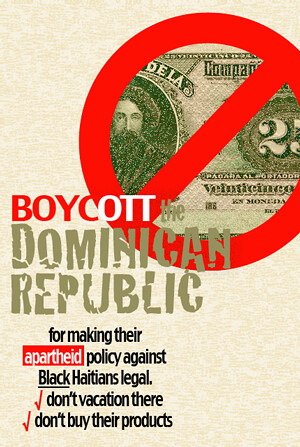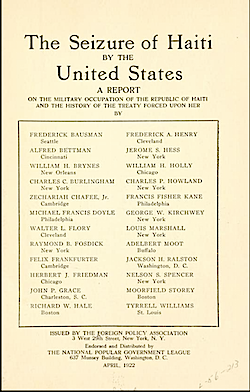A conversation with Somali Rapper Knaan about the Somali pirates
Music: When I get older, I will be stronger
They'll call me freedom, just like a waving flag
[rough transcript]
Knaan (rapping): We should know about the pirates terrorize the oceans
To never know a simple day without a big commotion
It can't be healthy to live with such a steep emotion
And when I try and sleep, I see coffins closing
Knaan: The Pirate situation in Somalia, has been massive in the media. You know what I mean, New York Times, front page, that sort of thing, But, it's never really, it's so interesting to me that, it's never really discussed in the way Somali's discuss it.
So, whenever... I mean, because we are the issue that people are talking about. And whenever Somali's get together and talk about Pirates. Ah.. the Pirates scenario. That... we talk about them as though they're the coast guards of the country.
We don't talk about them as if they are like, this evil group that's disturbing European trade. Which we don't really care about too much. It's like... European trade is fine, as long as it doesn't... as long as we get respected in our waters. In our territories. Our territories and waters has not been respected by the international community for a very long time.
There's been mass illegal fishing from foreign vessels. That are coming into the country. And just taking the resources of the Somali people. But also, even more sinister, is that there's foreign vessels coming in and dumping nuclear toxic waste into our shores.
Interviewer: This is the other side of the story, this is what they don't tell you on CNN.
Knaan: They can't, because they would implicate a lot of their legitimate companies that exist here... are not so legitimate, when they go to places where illegitimate governments. You know, they start to behave... they lose their charm, when they get over there.
Interviewer: So, that is a very accurate description; so you are the coast guard. And this makes perfect sense. I mean, you know for a while I was concerned. Maybe I shouldn't be taking my luxury liner/boat over there. But, now I didn't realize that when they were driving by the horn of Africa passing near Somalia. It wasn't to show us your beautiful country. It was to dump the waste and then go back.
Knaan: Yeah. And it's incredible, how crazy that is to dump nuclear toxic waste on people's shores. Because especially, we're on the Indian Ocean and Somalia is the largest coastal running line in Africa. And so it's completely un-protectable this area. And so what they have been doing, is for a ling time; you know the mobsters that used to be in New York, in the fishing industry, a lot of those guys went into the nuclear toxic waste business. Which sometimes is legitimate, and sometimes very, very illegitimate. And so they've been dumping these containers.
The thing is, if you dump... there's ways to properly package this stuff and get rid of it and put it in the water. And if you do that, usually you do that in cold waters. But the Indian Ocean is warm water. Where it would have taken in the cold water for a container to open up and break apart over a thousand years. In Somalia, in the Indian Ocean it will take just about a hundred years to open up. So were looking and facing an environmental disaster affecting the entire region of eastern Africa. The home of... the world's birthplace basically.
That this could have major consequences on the environment and human lives for generations to come. And you mean to tell me that the US and the Europeans sending all their navy power to stop the pirates, that we see as stopping that criminal activity. That's kinda the problem.
Interviewer: We've been talking a lot here in the US about green jobs and a green economy. You know, I'll just toss this out here again... it seems like that's a pretty green act that the green movement should get behind. And I wonder if more people from the green movement who are running around asking that Japan stop harpooning the whales and other folks that are trying to save the polar bears, see saving the Somali coastline and all the resources there in the same light.
Knaan: Yeah, well. (laughing) It's very interesting. Because the fact is that this has gotten all the way up to the UN Security Council. It's gotten high up. This issue of Somali... the nuclear toxic waste being dumped in Somalia. And then completely vetoed by the major powers. And forgotten about. And kinda just shoved under a rock.
Interviewer: Which major powers? Can you name a couple, so we can keep them on tap?
Knaan: I think France and the US both had interest in vetoing this issue. And of course France is in the waters. The navy is there. I mean, It's a major problem.
I think, what's really the sad thing about Somalia and Africa in general. When it comes to these kinds of progressive movements you have here in the West and in the US. Such as the green movement and the environmental culture and so on. Is once it's Black, green doesn't really matter so much any more.
Interviewer: ...How distorting the news has been, to make it seem like there were a bunch of uncontrolled barbarians running around, you know, just attacking luxury liners and I guess they didn't tell the story. That you all weren't killing people. You were holding them... and you know basically...
Knaan: Not one death. Not one death caused by these Pirates. Not one injury. In fact, they have such rules, such strict rules, guidelines, these Pirate's groups. If you verbally assault a captain, that there is a percentage cut off your pay. Your future pay. And so they are very, very well behaved. And they know what they are doing. They are very professional. They went out there initially to protect us.
Democracy Now! has analysis of the situation on their site.
President Obama vowed an international crackdown to halt piracy off the coast of Somalia Monday soon after the freeing of US cargo ship captain Richard Phillips, who had been held hostage by Somali pirates since last Wednesday. While the pirates story has dominated the corporate media, there has been little to no discussion of the root causes driving piracy. We speak with consultant and analyst Mohamed Abshir Waldo. In January, he wrote a paper titled “The Two Piracies in Somalia: Why the World Ignores the Other?” [includes rush transcript]





2 comments:
I hope and pray there is peace in the land and sea.
This is my hope and prayer too. While you are praying, remember the Nine Principles of Manifestation. All of *God's* creations are connected. Your desire for peace is adding to our collective consciousness and helping to manifest that hope.
You must also manifest your hope and prayers by taking action. Join UNITED FOR PEACE & JUSTICE and call your representatives in Congress (both the senate and the house) and demand that they Fund Diplomacy, Not the Wars! Let them know you care.
Post a Comment